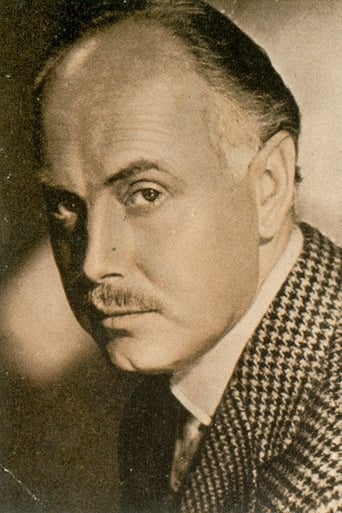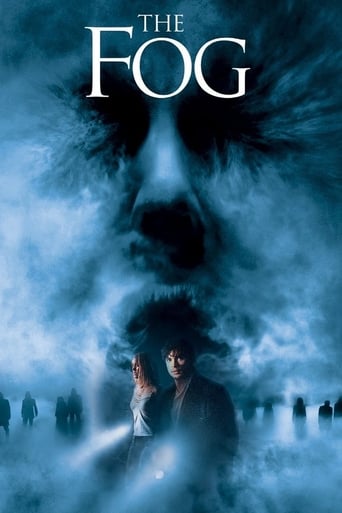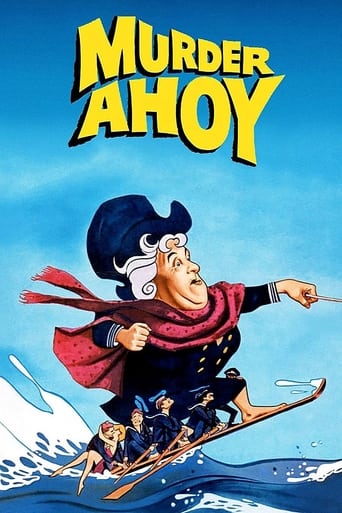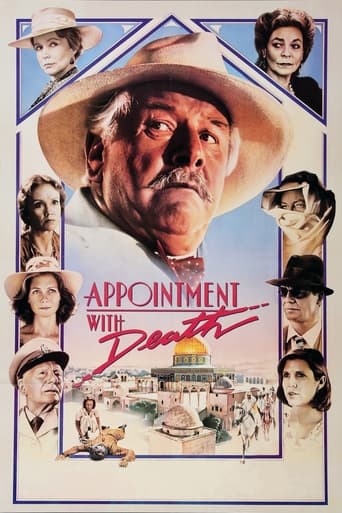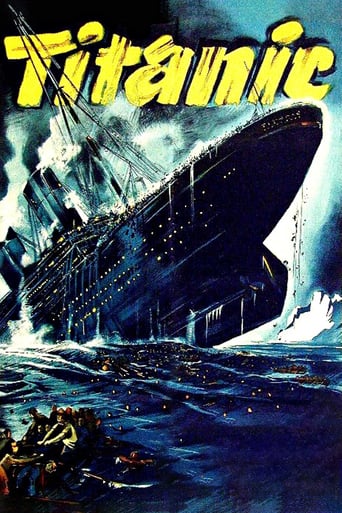
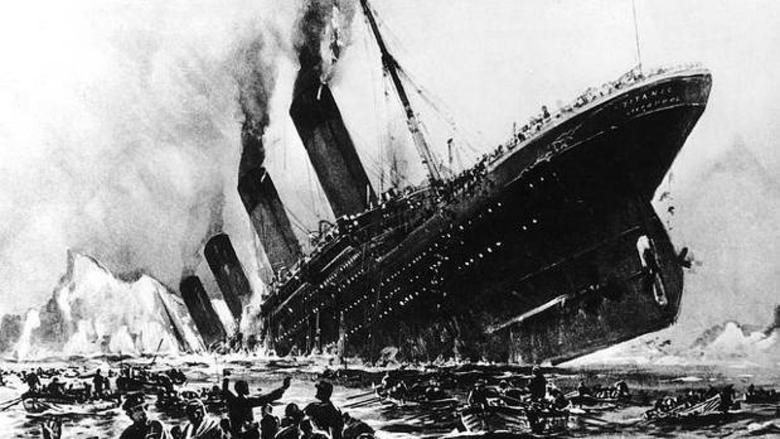
Titanic (1943)
This little-known German film retells the true story of the British ocean liner that met a tragic fate. Ernst Fritz Fürbringer plays the president of the White Star Line, who unwisely pressed the Titanic's captain (Otto Wernicke) to make the swiftest possible crossing to New York.
Watch Trailer
Cast
Similar titles

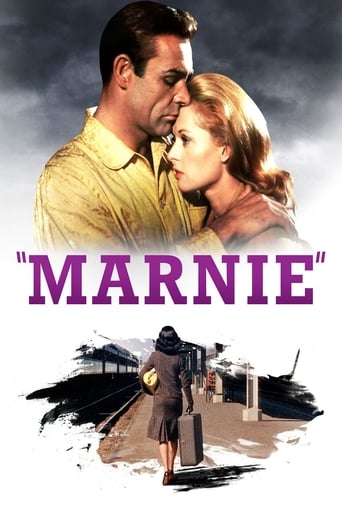
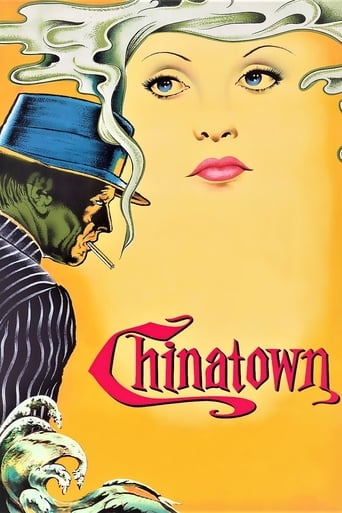
Reviews
You won't be disappointed!
Fresh and Exciting
Fantastic!
It's simply great fun, a winsome film and an occasionally over-the-top luxury fantasy that never flags.
"Titanic" is a German 1943 film, so this one is almost 75 years old. it was made in Germany, during the days of World War II, so you probably know already that the film has its fair share of propaganda too, even if most of it is not as obvious as other films from that era. "Titanic" runs for slightly over 80 minutes and gives us an insight into Nazi Germany's idea of how the ship sank and who is really responsible for it. It is actually quite ironic how they are trying to tell us that those (Jews, of course) responsible for it were not only not punished but profited from it while exploiting this catastrophe themselves. There are some prolific actors from back in the day in here, but none of them are really famous anymore today. This is a sound film and it's actually okay to listen to compared to other sound films from a couple years earlier. The industry has certainly advances fairly quickly, not only in the United States, but also in Europe.The most interesting thing about the movie is probably the background story involving writer and director Herbert Selpin. Unhappy with the impact the Propaganda Ministry had on the film, he was quite vocal about his concerns and thought on the entire political climate. The consequence was that he got arrested and most likely killed while making it look like a staged suicide. Official comments indicated anyway that he was about to be sentenced to death soon. As spectacular as all this may seem, none of the film is really spectacular or memorable. I found it a pretty boring watch for the most part and only a few scenes were interesting, certainly not enough for a film that crosses the 80-minute mark. The acting is also really mediocre. I do not recommend watching this film here. Quick little note: When this was made, James Cameron wasn't even alive yet.
The Teutonic TITANIC's been called everything from "artistically terrible" to "morbidly compelling" and with good reason. It's also talky (or, in this case, subtitle-y) and doesn't really kick in until the final minutes but considering the anti-British agenda, the doomed ship was merely a medium for the message anyway. Not only is the film of historical importance as a pluperfect example of Nazi agitprop, the backstory's as tragic as the events unfolding on screen:Third Reich Propaganda Minister Josef Goebbels heartily endorsed the project because he thought the tragic tale was "a classic case of British incompetency" but, ironically, after its completion he banned the film in Germany, thinking the scenes of panic and despair hit too close to home for a beleaguered populace in a time of heavy Allied bombing. The director, Herbert Selpin, was overheard making a crack about the German navy and promptly hauled off by the Gestapo who put him in prison; he was later found hanging in his cell, a "suicide", of course. Troubled star Sybille Schmitz was also the real-life inspiration for Rainer Warner Fassbinder's VERONIKA VOSS but the darkest of all fates awaited the S.S. Cap Arcona, a one-time luxury liner used in the filming. In May, 1945, the Cap Arcona, commandeered by the German navy, was ferrying prisoners of war in the Baltic when it was sunk by the RAF. "Pilots of the attacking force stated that they were unaware that the ships were laden with prisoners who had survived the camps... The RAF commanders ordering the strike reportedly thought that the ships carried escaping SS officers." More than 5,000 lost their lives that night (five times Titanic's death toll and the second worst maritime disaster in history) and it's said that survivors in the water were picked off by Nazi snipers as they tried to swim ashore. As late as 1971, skulls and bones were still washing up on beaches. After WWII, TITANIC was considered one of the "spoils of war" and American and British filmmakers were free to use footage from it whenever they wanted. Snippets show up in 1958's A NIGHT TO REMEMBER as well as a slew of U.S. television shows in the 50s & 60s. The panic, terror, and grisly particulars of the sinking of the Cap Arcona are as dramatic as any Titanic re-telling:"Equipped with lifejackets from locked storage compartments, most of the SS guards were able to jump overboard from the Cap Arcona, and there appear to be rumors that despite the water temperature of only 7°C, they were busy shooting any prisoners who tried to escape. German trawlers sent to rescue Cap Arcona's crew members and guards managed to save 16 sailors, 400 SS men, and 20 SS women. Most of the prisoners who tried to board the trawlers were beaten back, while those who reached shore were shot down. The prisoners that managed to swim ashore were mainly gunned by the SS. Only 350 of the 4,500 former concentration camp inmates who had been aboard the Cap Arcona survived. RAF Pilot Allan Wyse of No. 193 Squadron later recalled, "We used our cannon fire at the chaps in the water . . . we shot them up with 20mm cannons in the water. Horrible thing, but we were told to do it and we did it. That's war." Severely damaged and set on fire, the Cap Arcona eventually capsized. The death toll was estimated at 5,000 people."One last thing about the Cap Arcona catastrophe -quite a few of those concentration camp survivors were captured American soldiers which makes this the most horrific case of "friendly fire" ever.
Why the Nazis chose to spend a lot of money to make a film about the Titanic during the middle of WWII I'll never know. You can see that the real story of the ship is twisted into a propaganda piece that both extols German decency and decries the evils of a Capitalist society. It does this by creating some Germans and making them all nice folks--particularly the First Officer that tries very hard to do what is right even though Captain Smith and the nefarious forces of Capitalistic greed are risking the lives of everyone aboard! In the National Socialist Germany, the importance of individual profit and gain was publicly forbidden and America and Britain were seen as dominated by selfish self-interest. So the "nice Germans" are always mindful of the ultimate good and the rich Americans and Brits are the worse stereotypes of Capitalism. And so time and again, the First Officer is good and dutiful and tries his best to protect the ship and passengers while industrialists/speculators Ismay and Astor do everything purely for self-interest. All this was meant to convince Germans of the rightness of their political system, though the ugly truth was that many rich German industrialists became immensely wealthy thanks to German re-armament.Despite the obvious propaganda in the film, the movie itself was surprisingly well-made. While the shot of the Titanic (using a model) was incredibly sloppily done (with VERY fuzzy camera-work to try to hide that it was a model), the rest of the film looks pretty opulent and the acting was very convincing considering it was made in 1943-- as things were turning VERY bad for the Germans. Sadly, although the film is watchable and VERY interesting, it was not shown in Germany and was only recently discovered--it deserved a wider audience despite its shortcomings.
I've long known of this movie but I only now got to watch it and what a welcome surprise it turned out to be! Once one gets past the oddity factor of having a German hero and hearing these "Britons" talking in German, the end result is a very interesting version of the Titanic disaster: my rating veered between ***1/2 and *** all the way through the film and, though it definitely has its faults, I decided to go with the higher rating because of its undeniable artistic qualities – not to mention the singular and decidedly fresh viewpoint offered for this oft-filmed ship-set drama.The characterizations offer a microcosmic dog-eat-dog world in which various financiers (and other upper-crust members of British society) teeter on the edge of bankruptcy and are further tensed up by petty jealousies, a theft of jewelry and, finally, the sinking of the ship itself; the stock market element (a major plot point) recalls another disaster film, THE END OF THE WORLD (1916), which I've just watched. Still, the most interesting character is perhaps the female lead played by the beautiful and tragic Sybille Schmitz – she had appeared in Carl Dreyer's VAMPYR (1931), and her life story would eventually be fictionalized in Rainer Werner Fassbinder's VERONIKA VOSS (1982).To get now to the cons I mentioned earlier: the ship only sinks at the very last minute (although, while one shouldn't expect much spectacle, the special effects are very well handled for the period) and the courtroom epilogue is somewhat anti-climactic as it reveals that many of the despicable protagonists survived the tragedy (which was perhaps a mistake). The overt critique of the British as snobbish, egocentric and money-grubbing (and especially the concluding statement) seems fairly hilarious now - but one wonders if it was actually so unrealistic given the unmitigated and misguided optimism that was clearly felt by all back in the day, with respect to the entire Titanic venture! It's been quite a while since I watched A NIGHT TO REMEMBER (1958) and I've yet to check out the 1953 glossy Hollywood version; still, even in comparison with the latest 'definitive' (though actually overblown and exceedingly commercial) version, the 1943 film practically covers all the various angles – including the plight of the second-class voyagers, the robbery and even the impossible central romance – in less than half the running-time! Alarmingly, director Herbert Selpin was arrested (and subsequently executed) by the Gestapo sometime during production and Werner Klinger (who went on to dabble in Edgar Wallace Krimis and the revamped DR. MABUSE films of the 1960s) stepped in - but the results are quite seamless! Ironically, while the film was intended by the Nazi regime as anti-British propaganda, TITANIC was eventually banned in its native country because of the intensity of its scenes of panic and terror!

